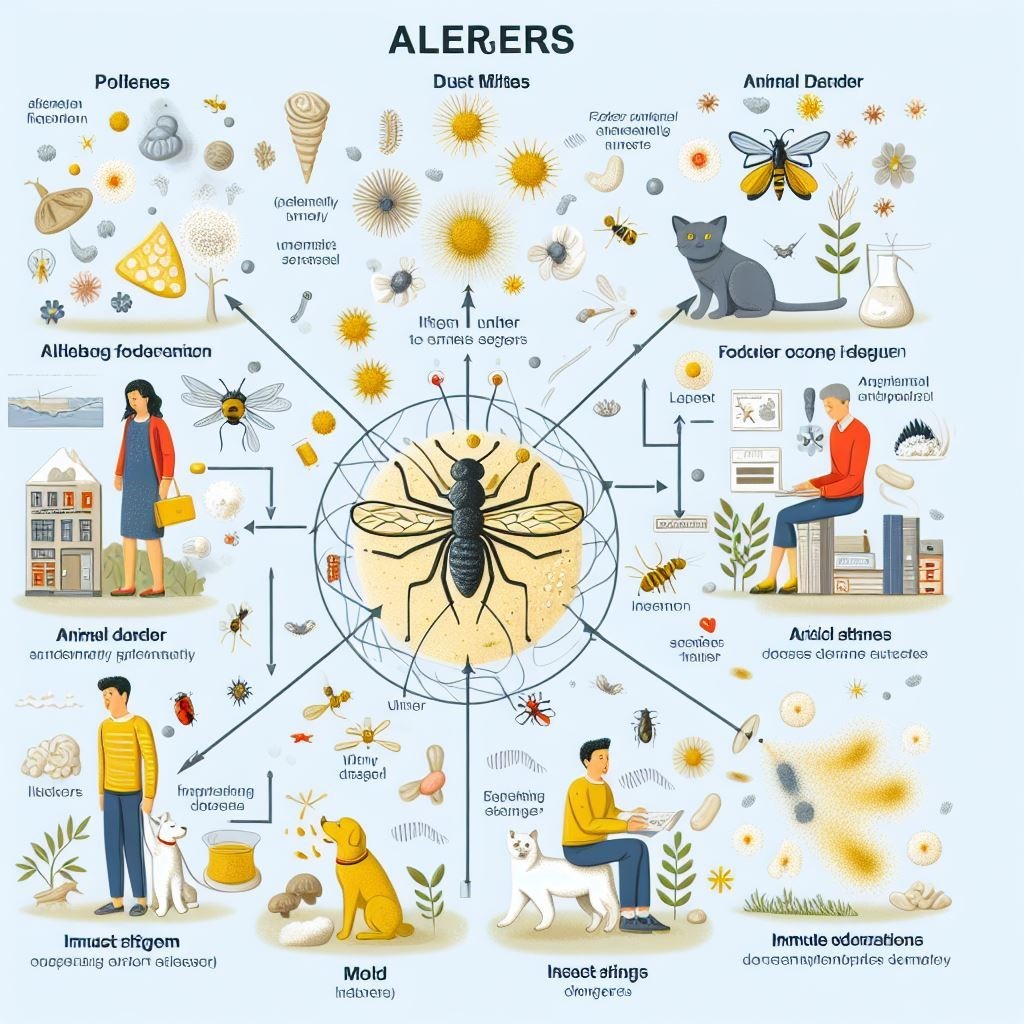Uncover the mysteries of allergies! Dive deep into triggers & find lasting relief. Understand What Causes Allergies & breathe easy again.
Key Takeaways about Understanding What Causes Allergies
| Investigating Allergies | Summary |
| Common Allergy Triggers | Explore common causes for allergies. |
| Relief Strategies | Discover practical methods for allergy relief. |
| Sleep Science Insights | Understand the connection between sleep and allergies. |
Allergies Unveiled: A Thorough Analysis of What Causes Allergies
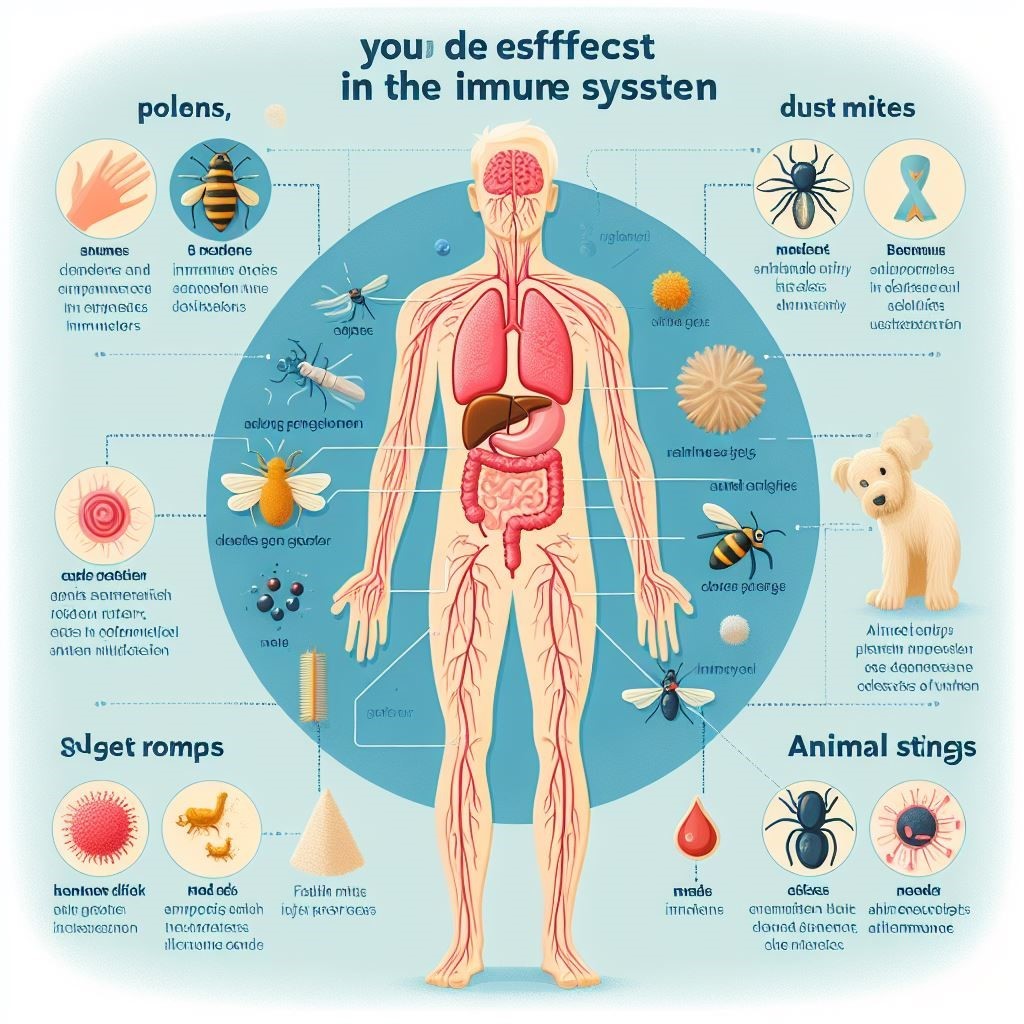
Allergies, a widespread affliction affecting millions worldwide, can turn the simplest joys into sneezing symphonies and itchy eye marathons. In this comprehensive guide, we explore the roots of allergies, understanding the common triggers and practical relief strategies to navigate the allergy landscape effectively.
Types of Allergies and Their Impact on Health
Allergies, immune system responses to substances mistaken as harmful, come in various forms, affecting individuals differently. Understanding the types of allergies and their effects is crucial for effective management. Let’s explore common allergies and the toll they can take on health.
-
Seasonal Allergies (Allergic Rhinitis):
Culprits: Pollen from trees, grasses, and weeds.
Impact:
- Symptoms: Sneezing, runny or stuffy nose, itchy or watery eyes.
- Effect on Health: Reduced quality of life because of discomfort, fatigue, and impaired sleep.
-
Perennial Allergic Rhinitis:
Culprits: Year-round allergens like dust mites, pet dander, and mould.
Impact:
- Symptoms: Persistent sneezing, congestion, itchy eyes.
- Effect on Health: Chronic symptoms can lead to irritability, sleep disturbances, and decreased productivity.
-
Food Allergies:
Culprits: Proteins in specific foods like nuts, eggs, dairy, and shellfish.
Impact:
- Symptoms: Swelling, hives, abdominal pain, difficulty breathing (in severe cases).
- Effect on Health: Anaphylaxis, a severe reaction, can be life-threatening and requires immediate medical attention.
-
Insect Sting Allergies:
Culprits: Venom from bees, wasps, hornets, yellow jackets, and fire ant stings.
Impact:
- Symptoms: Localized swelling, pain, itching, hives.
- Effect on Health: Severe reactions can lead to anaphylaxis, requiring emergency intervention.
-
Drug Allergies:
Culprits: Reaction to specific medications.
Impact:
- Symptoms: Rash, itching, swelling, and respiratory distress.
- Effect on Health: Adverse drug reactions can range from mild to severe, impacting treatment options.
-
Latex Allergy:
Culprits: Proteins in natural rubber latex.
Impact:
- Symptoms: Skin irritation, hives, and respiratory symptoms.
- Effect on Health: Avoidance of latex products is essential to prevent reactions during medical procedures or everyday activities.
-
Skin Allergies (Contact Dermatitis):
Culprits: Irritants or allergens coming in contact with the skin.
Impact:
- Symptoms: Red, itchy rash, blisters.
- Effect on Health: Impaired skin integrity, discomfort, and potential secondary infections.
-
Eye Allergies (Allergic Conjunctivitis):
Culprits: Allergens like pollen, pet dander, and mould.
Impact:
- Symptoms: Itchy, red, watery eyes.
- Effect on Health: Disrupted vision, discomfort, and impaired daily activities.
-
Allergic Asthma:
Culprits: Triggers like pollen, mould, and pet dander.
Impact:
- Symptoms: Wheezing, shortness of breath, chest tightness.
- Effect on Health: Reduced lung function, increased risk of respiratory infections.
-
Occupational Allergies:
Culprits: Substances encountered at the workplace, like dust, chemicals, or proteins.
Impact:
- Symptoms: Vary based on the allergen, from skin irritation to respiratory distress.
- Effect on Health: Impaired occupational performance, potential long-term health issues.
Understanding the specific type of allergy an individual faces is crucial for tailored management strategies. Whether it’s seasonal discomfort or severe reactions, addressing allergies promptly enhances overall well-being and quality of life.
Part 1: Common Allergy Triggers
Understanding the Culprits Behind What Causes Allergies
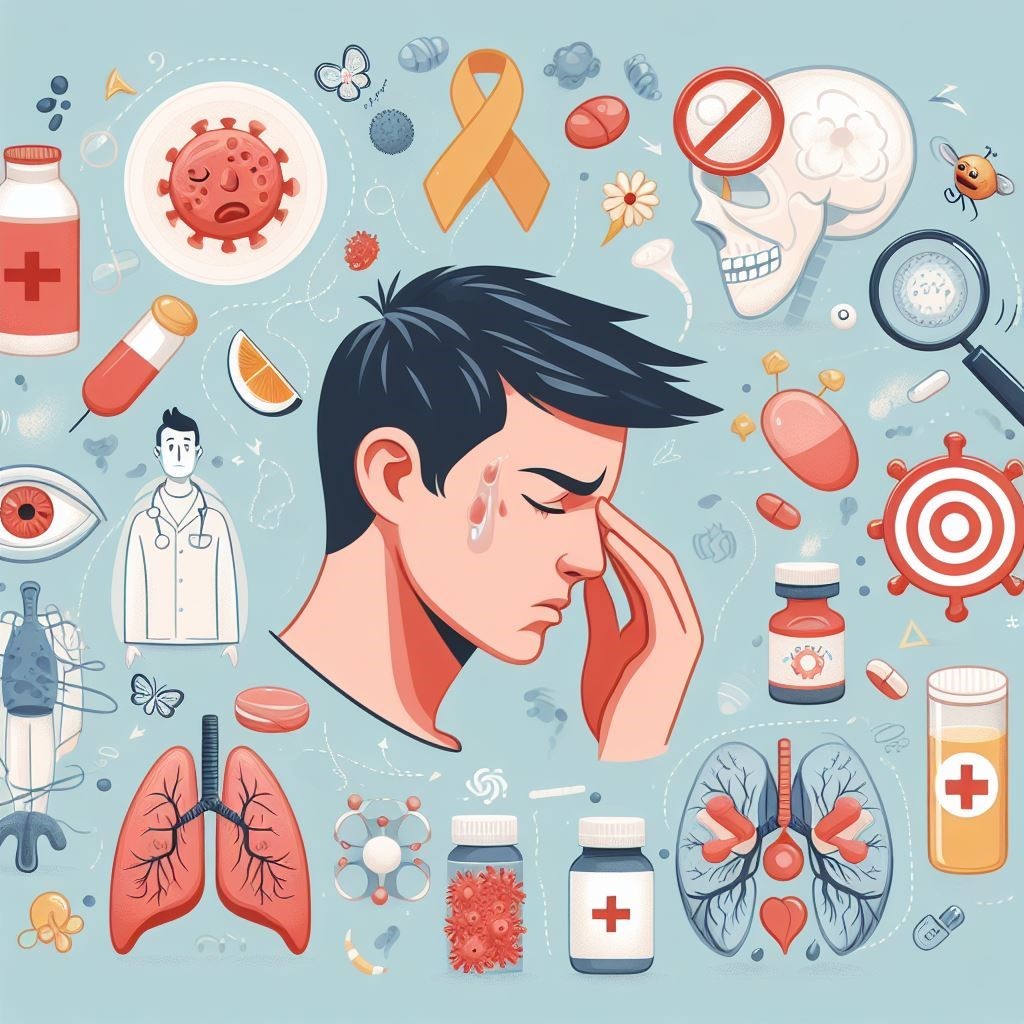
What Causes Allergies? The answer is nestled within myriad triggers capable of setting off your body’s immune response. Let’s investigate these common culprits with a keen eye on the science behind allergic reactions.
- Pollen:
- Trees, grasses, and weeds release pollen during specific seasons, causing seasonal allergies.
- Pollen grains can trigger an immune response, leading to symptoms like sneezing, nasal congestion, and itchy eyes.
- Table: Common Pollen Seasons
| Pollen Type | Peak Season |
| Tree Pollen | Spring |
| Grass Pollen | Late Spring |
| Weed Pollen | Late Summer/Fall |
- Dust Mites:
- Microscopic creatures live in household dust, particularly in bedding, upholstered furniture, and carpets.
- Proteins found in dust mite waste and dead mites can trigger allergic reactions.
- List: Tips to Reduce Dust Mite Exposure
- Use allergen-proof mattresses and pillow covers.
- Wash bedding weekly in hot water to kill dust mites.
- Pet Dander:
- Tiny, often microscopic, flecks of skin shed by cats, dogs, rodents, birds, and other animals with fur or feathers.
- Allergenic proteins in pet dander can cause allergic reactions in sensitive individuals.
- Table: Hypoallergenic Pet Breeds
| Breed | Allergy-Friendly Features |
| Poodle | Low-shedding coat, minimal dander |
| Schnauzer | Hypoallergenic coat, less shedding |
| Bichon Frise | Non-shedding, curly coat |
- Insect Stings:
- Venom from bees, wasps, hornets, yellow jackets, and fire ant stings can trigger allergic reactions.
- Allergic reactions can range from localized swelling and pain to severe, life-threatening anaphylaxis.
- Mould Spores:
- Mould spores are present both indoors and outdoors and can trigger allergic reactions.
- Common in damp or humid environments, such as basements, bathrooms, and kitchens.
Part 2: Relief Strategies for What Causes Allergies
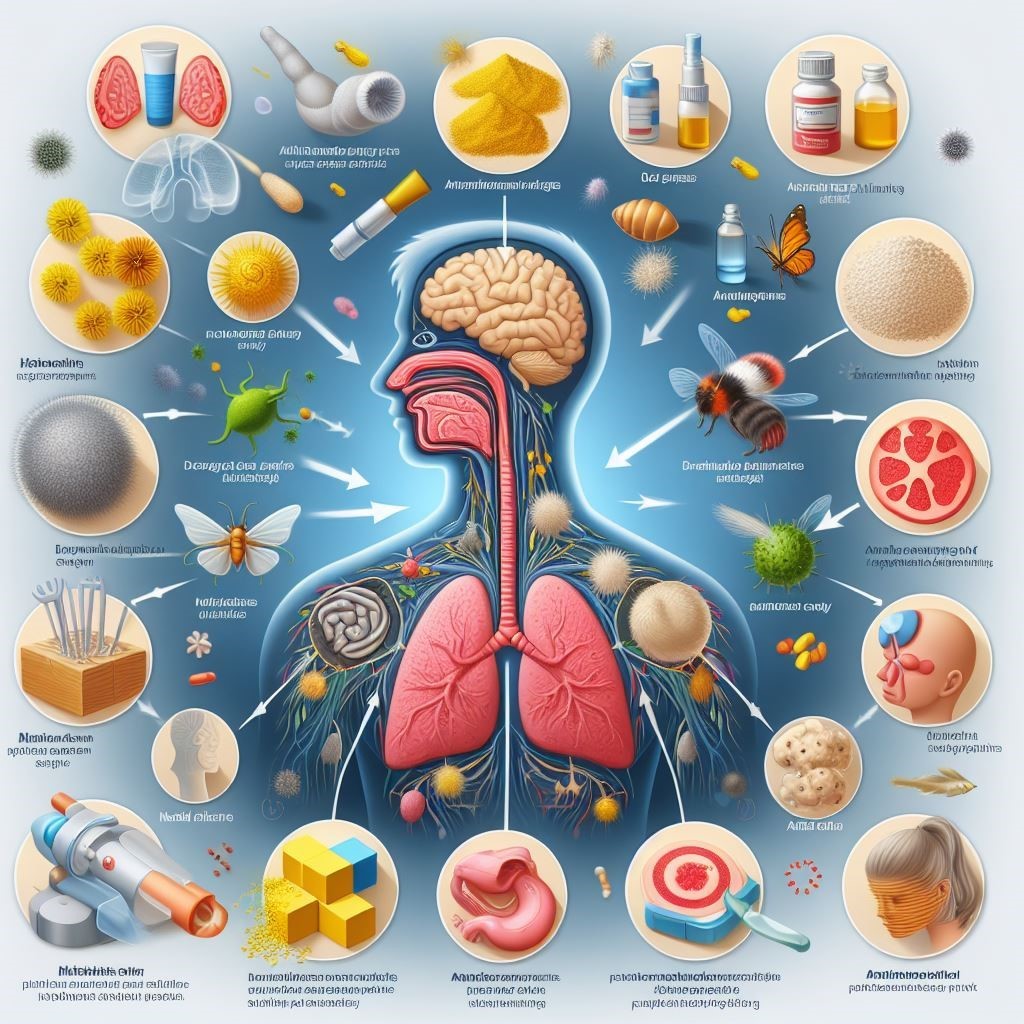
Practical Approaches for What Causes Allergies
Understanding What Causes Allergies is essential, but finding relief is equally crucial. Consider these practical strategies to alleviate allergy symptoms and regain control over your well-being.
- Allergy-Proofing Your Home:
- Invest in high-efficiency air purifiers to reduce indoor allergens.
- Keep windows closed during peak pollen seasons to prevent outdoor allergens from entering your home.
- Over-the-Counter Medications:
- Antihistamines like loratadine can relieve sneezing, itching, and a runny nose.
- Nasal corticosteroids reduce inflammation in the nasal passages, alleviating congestion.
- Natural Remedies:
- Local honey may help build tolerance to local pollen, reducing allergic reactions over time.
- Saline nasal rinses can flush out irritants and provide relief from nasal congestion.
- Immunotherapy:
- Allergy shots or sublingual tablets can desensitize your immune system to specific allergens, providing long-term relief.
Part 3: Sleep Science Insights
The Sleep-Allergy Connection: Unravelling the Relationship
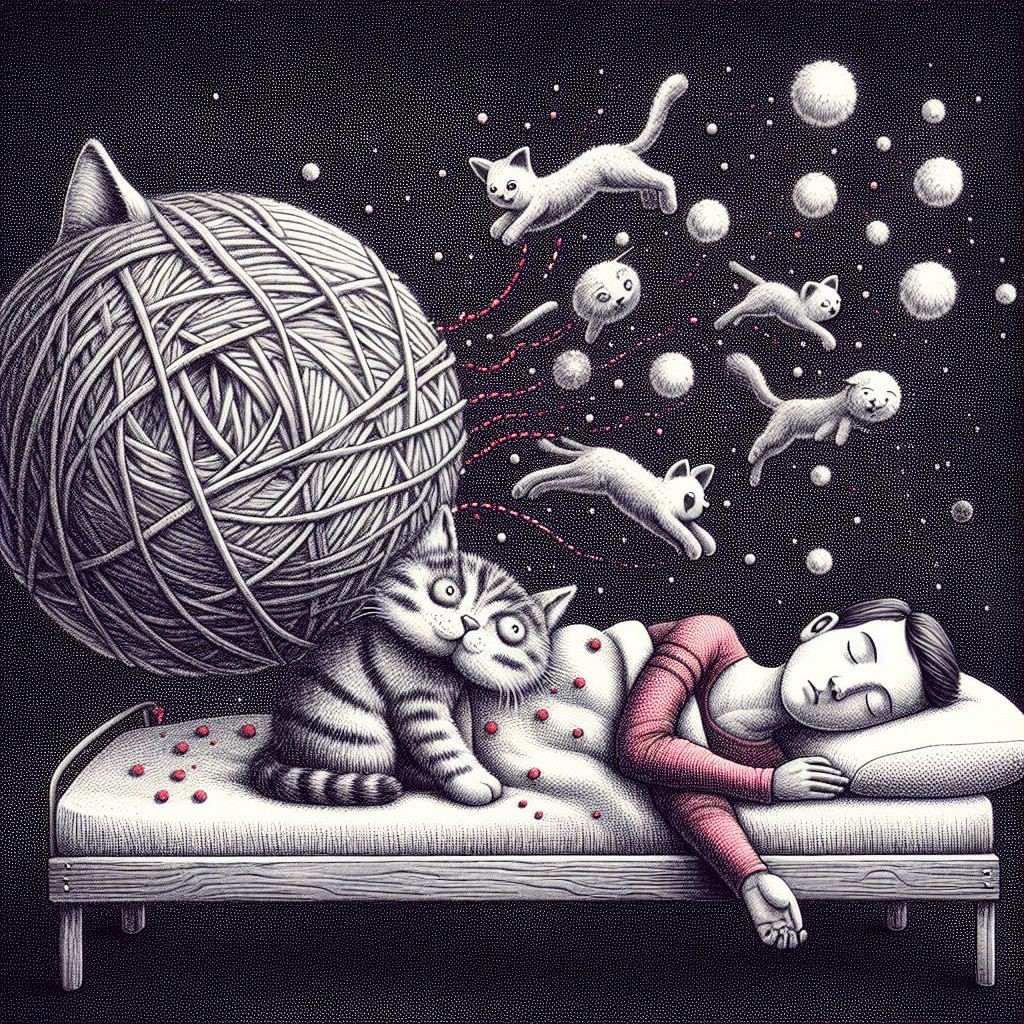
Understanding the interplay between sleep and allergies is pivotal for overall well-being. Poor sleep can exacerbate allergy symptoms, and allergies can disrupt sleep. Here’s a closer look at the science behind the sleep-allergy connection.
- Sleep Disruption and Allergies:
- Nasal congestion and itching can lead to sleep disturbances, affecting the overall quality of sleep.
- Allergic rhinitis, a common allergy, is associated with sleep disorders like insomnia and sleep apnea.
- List: Tips for Better Sleep with Allergies
- Use hypoallergenic bedding to reduce exposure to allergens.
- Keep bedroom windows closed during high pollen seasons to minimize outdoor allergen entry.
- The Importance of Quality Sleep:
- A well-rested body is better equipped to handle allergens and mount an effective immune response.
- Chronic sleep deprivation may increase susceptibility to allergies and worsen existing allergy symptoms.
- Table: Recommended Sleep Durations by Age
| Age Group | Recommended Sleep Duration |
| Adults | 7-9 hours per night |
| Teens | 8-10 hours per night |
| Children | 9-13 hours per night |
Conclusion for What Causes Allergies
In conclusion, understanding What Causes Allergies empowers you to take control of your well-being. Recognizing common triggers, implementing practical relief strategies, and appreciating the sleep-allergy connection are pivotal steps toward a life with fewer sneezes and more restful nights.
FAQS about What Causes Allergies
Here are the common frequently asked questions about What Causes Allergies and the best answers for them.
Q: How do you get rid of allergies?
A: To ease allergies, start with over-the-counter antihistamines like loratadine. Nasal corticosteroids can help with congestion. Consider allergy-proofing your home—use air purifiers and keep windows closed during peak seasons. For severe cases, consult a healthcare professional for personalized advice.
Q: How do you prevent allergies?
A: Prevent allergies by reducing exposure to triggers. Keep living spaces clean, use allergen-proof bedding, and invest in air purifiers. During high pollen seasons, keep windows closed. Regular cleaning, proper ventilation, and minimizing contact with known allergens are critical steps in preventing allergic reactions.
Q: Why do I have allergies suddenly?
A: Sudden allergies may result from new exposures or environmental changes. Environmental factors, like moving to a new area with different allergens, can trigger sudden allergic reactions. Consider recent changes in diet, surroundings, or exposure to new pets, as they might be potential causes.
Q: Why do I have allergies every day?
A: Daily allergies could be because of persistent exposure to allergens. Common culprits include dust mites, pet dander, or mould. Identify and minimize contact with triggers. Regular cleaning, air purifiers, and stress management can reduce daily allergic reactions. If symptoms persist, consult a healthcare professional for a comprehensive evaluation.

